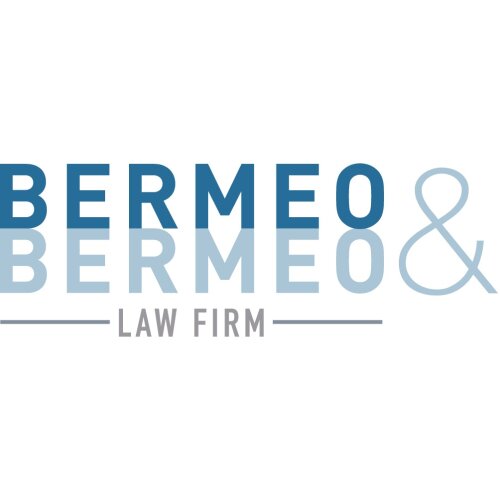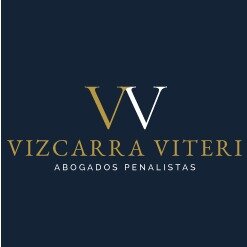Best Sanctions & Export Controls Lawyers in Quito
Share your needs with us, get contacted by law firms.
Free. Takes 2 min.
List of the best lawyers in Quito, Ecuador
About Sanctions & Export Controls Law in Quito, Ecuador
Sanctions and export controls are an important part of international trade regulations, designed to influence the behavior of foreign entities, protect national security, and comply with international agreements. In Quito, Ecuador, these laws regulate the export, re-export, transfer, and import of goods, technologies, and services that could potentially affect national security or violate foreign policy objectives. Local laws align with international standards, including United Nations Security Council resolutions and treaties Ecuador has entered into. Businesses and individuals operating in Quito must understand these regulations to ensure compliance and avoid severe legal consequences.
Why You May Need a Lawyer
There are several scenarios where obtaining legal advice on sanctions and export controls is crucial. These include:
- Navigating complex export regulations for goods, technology, or services.
- Dealing with frozen assets or other economic sanctions imposed by local or foreign authorities.
- Responding to governmental investigations or audits related to export controls or sanctions.
- Complying with international sanctions lists when doing business with foreign individuals or entities.
- Developing internal compliance policies to avoid unintentional violations.
- Challenging or appealing government sanctions or penalties.
A lawyer specializing in this field can help ensure your business operations are compliant, provide defense in enforcement actions, and update you on regulatory changes.
Local Laws Overview
Ecuador has specific laws and regulations addressing sanctions and export controls, enforced primarily by the Ministry of Foreign Trade and the Customs Administration (Servicio Nacional de Aduana del Ecuador - SENAE). Key aspects of local law include:
- Licensing requirements for the export and import of controlled goods and technology.
- Prohibitions on trade with certain countries, organizations, or individuals as per international agreements.
- Declaration and reporting obligations for certain transactions, including high-value transfers or dual-use goods.
- Penalties for violations, which can range from fines to criminal charges and asset seizures.
- Obligations for financial institutions to monitor and report suspicious transactions linked to sanctions targets.
- Compliance with international conventions that Ecuador has ratified, especially those related to arms control and non-proliferation.
Understanding these local frameworks is essential for both exporters and importers operating in Quito or across Ecuador.
Frequently Asked Questions
What are sanctions and export controls?
Sanctions are restrictive measures, such as trade bans or asset freezes, imposed by governments or international bodies. Export controls are laws regulating the movement of certain goods, technology, or services out of the country to protect national interests and fulfill international obligations.
Who enforces these laws in Quito, Ecuador?
The primary agencies include the Ministry of Foreign Trade, SENAE, and the Ministry of Foreign Relations, with guidance from international agreements and the United Nations.
What are the consequences of violating sanctions or export control regulations?
Violations can result in administrative penalties, loss of business licenses, hefty fines, seizure of goods, and even criminal charges depending on the severity of the breach.
Are there any goods or countries I cannot export to from Ecuador?
Yes, Ecuador restricts trade with certain countries, organizations, or persons in accordance with its international obligations, especially for specific goods such as arms, technology with dual-use potential, or endangered species.
Do I need a license to export certain products?
Some products, especially those on the controlled or sensitive goods list, require an export license. You must apply for and obtain this license before proceeding with the export.
How do I know if my transaction is subject to export controls?
You must consult Ecuador’s controlled goods and technologies lists, as well as any applicable international sanctions lists, to determine if your transaction requires special authorization.
Can an individual be subject to sanctions or only companies?
Both individuals and entities can be subject to sanctions for direct or indirect involvement in prohibited activities.
What should I do if my goods are detained by customs?
Contact a lawyer immediately to review your documentation and communicate with customs authorities to resolve the issue and ensure compliance with all regulations.
Do Ecuadorian laws apply when exporting goods to international organizations?
Yes, Ecuadorian law applies to all exports originating from national territory, including those to international organizations, especially when such exports could affect national or international security.
What steps can I take to ensure compliance?
Develop a compliance plan, regularly review applicable laws, train staff, and conduct internal audits. Legal counsel can help tailor strategies specific to your business needs.
Additional Resources
For further assistance, consider the following institutions and resources:
- Ministry of Foreign Trade (Ministerio de Producción, Comercio Exterior, Inversiones y Pesca) - Guidance and licensing for exports
- Servicio Nacional de Aduana del Ecuador (SENAE) - Customs enforcement and information on controlled goods
- Ministry of Foreign Relations and Human Mobility - Updates on international obligations and sanctions lists
- Chamber of Commerce of Quito - Business advisory services
- Professional legal associations in Quito specializing in trade and economic law
Next Steps
If you believe you need legal assistance with sanctions and export controls in Quito, Ecuador, consider taking these steps:
- Gather all relevant documents and information about your business, transactions, and products.
- Identify and list any countries, entities, or goods your company deals with that might trigger export control or sanctions issues.
- Contact a lawyer or law firm specializing in trade law or economic regulations in Ecuador.
- Schedule a consultation to review your case and develop a compliance strategy.
- Stay informed about regulatory changes that could impact your operations.
Timely legal advice can prevent costly mistakes, ensure regulatory compliance, and protect your business interests both in Quito and internationally.
Lawzana helps you find the best lawyers and law firms in Quito through a curated and pre-screened list of qualified legal professionals. Our platform offers rankings and detailed profiles of attorneys and law firms, allowing you to compare based on practice areas, including Sanctions & Export Controls, experience, and client feedback.
Each profile includes a description of the firm's areas of practice, client reviews, team members and partners, year of establishment, spoken languages, office locations, contact information, social media presence, and any published articles or resources. Most firms on our platform speak English and are experienced in both local and international legal matters.
Get a quote from top-rated law firms in Quito, Ecuador — quickly, securely, and without unnecessary hassle.
Disclaimer:
The information provided on this page is for general informational purposes only and does not constitute legal advice. While we strive to ensure the accuracy and relevance of the content, legal information may change over time, and interpretations of the law can vary. You should always consult with a qualified legal professional for advice specific to your situation.
We disclaim all liability for actions taken or not taken based on the content of this page. If you believe any information is incorrect or outdated, please contact us, and we will review and update it where appropriate.
















